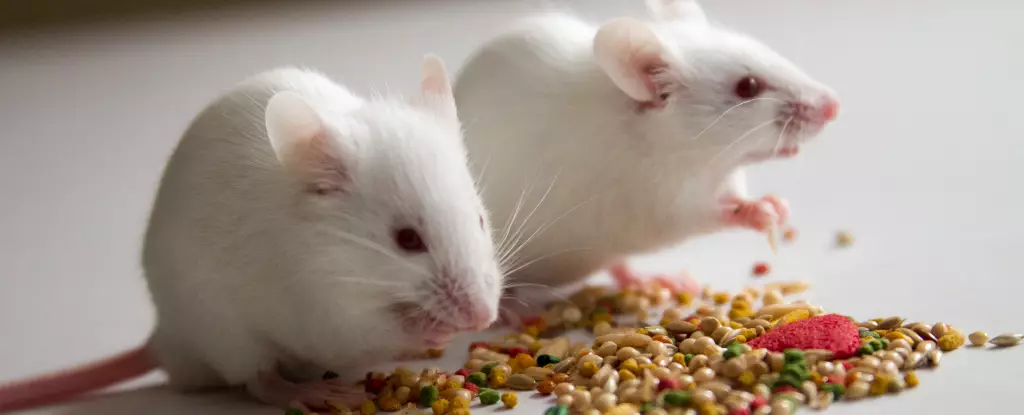Recent studies have posed intriguing hypotheses about the role of caloric restriction in lifespan extension. Among them, a significant investigation conducted on nearly 1,000 mice sheds light on the relationship between reduced caloric intake and longevity. Previous research hinted that reduced food supply might lead to a longer life across various species, but translating these findings to human physiology remains complex and challenging. The ethical barriers of human clinical trials amplify these complexities, making it difficult to ascertain the exact conditions under which caloric restriction may benefit human longevity.
The findings from the animal study provide a glimmer of hope. Mice subjected to severe caloric restriction demonstrated substantial weightloss and were observed to live, on average, nine months longer than their counterparts on a regular diet. This outcome is remarkable, suggesting a potential one-third increase in lifespan attributable to calorie moderation. However, we must tread carefully; the same study revealed a diverse range of outcomes within these groups, prompting a deeper analysis of the factors at play.
The crucial detail here is the variation in the lifespan of the calorie-restricted mice. Simultaneously, it revealed that within the heavily-restricted cohort, those retaining more weight often lived longer, indicating that simple caloric limitation may not be the sole determinant of longevity. These findings challenge the conventional belief that less food always equals a longer life; instead, they present a more nuanced view that emphasizes the role of genetics and health variables.
Notably, the study identified specific traits associated with longer life, such as higher proportions of infection-fighting white blood cells and reduced variation in red blood cell size. These findings imply that health markers, rather than merely caloric intake, may significantly influence lifespan. In essence, the mice that were “better equipped”—both metabolically and immunologically—tended to thrive longer, suggesting that longevity results from a multifactorial interplay rather than a straightforward caloric formula.
Intermittent Fasting vs. Constant Caloric Restriction
In parallel to the studies on mice, intermittent fasting (IF) has gained traction as another promising avenue for enhancing health and longevity. IF typically involves cycling between periods of eating and fasting, presenting an appealing alternative to constant caloric restriction. While evidence suggests that both strategies could potentially extend lifespan and mitigate age-related diseases, the nuances in effectiveness and underlying mechanisms remain subjects of intense debate.
One of the key advantages of intermittent fasting is its flexibility. Rather than rigidly monitoring caloric intake daily, individuals can experience the benefits of fasting while still enjoying their meals. Preliminary studies hint at a variety of health benefits, from improved blood sugar regulation to reductions in inflammation. However, as we seek to identify the most effective dietary interventions for longevity, more extensive, well-rounded studies are essential, particularly those geared toward human populations.
One cannot escape the reality that human physiology is intricately different from that of laboratory mice. Factors such as genetic variability, metabolic adaptations, and psychosocial influences complicate the application of animal findings to human health. The critical insight derived from animal studies is the potential significance of tailoring dietary practices not only to physical needs but also to the diverse genetic backgrounds of individuals.
Our understanding of longevity should encompass broader considerations—including lifestyle choices like physical activity, sleep quality, and stress management. Adopting a holistic approach to health rather than fixating solely on caloric intake may be the most effective strategy for many individuals. Emphasizing a balanced diet rich in essential nutrients coupled with mindful lifestyle practices could offer more comprehensive benefits for longevity than any singular strategy.
The evidence from caloric restriction and intermittent fasting studies presents compelling arguments for contemplating how we interact with our food. Nevertheless, these findings invoke caution; while reducing caloric intake may extend the life of some species, the results within mice indicate that health, genetics, and environmental factors significantly influence longevity. For humans, emphasizing balanced dietary practices and overall well-being may play an equally, if not more, vital role in extending quality years of life. As the dialogue around diet and longevity evolves, it becomes crucial that we merge insights from animal studies with an understanding of human complexity to foster healthier, longer lives.

